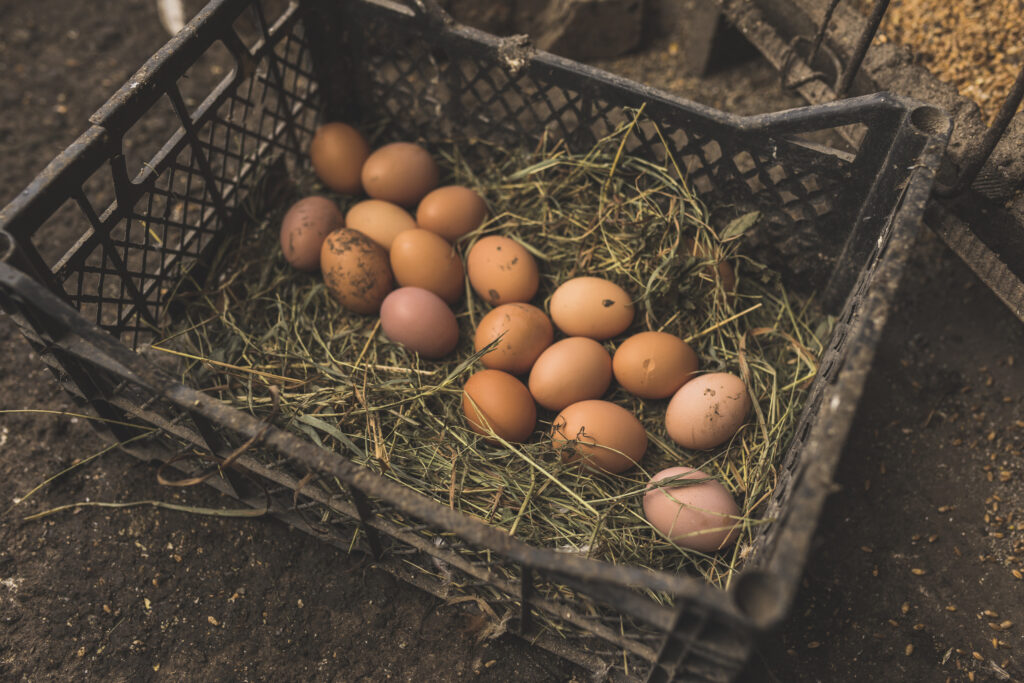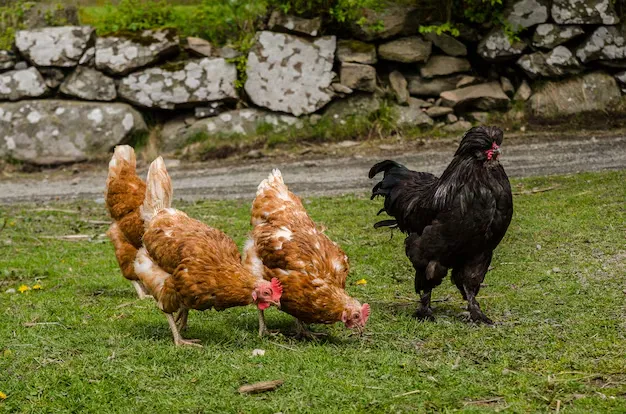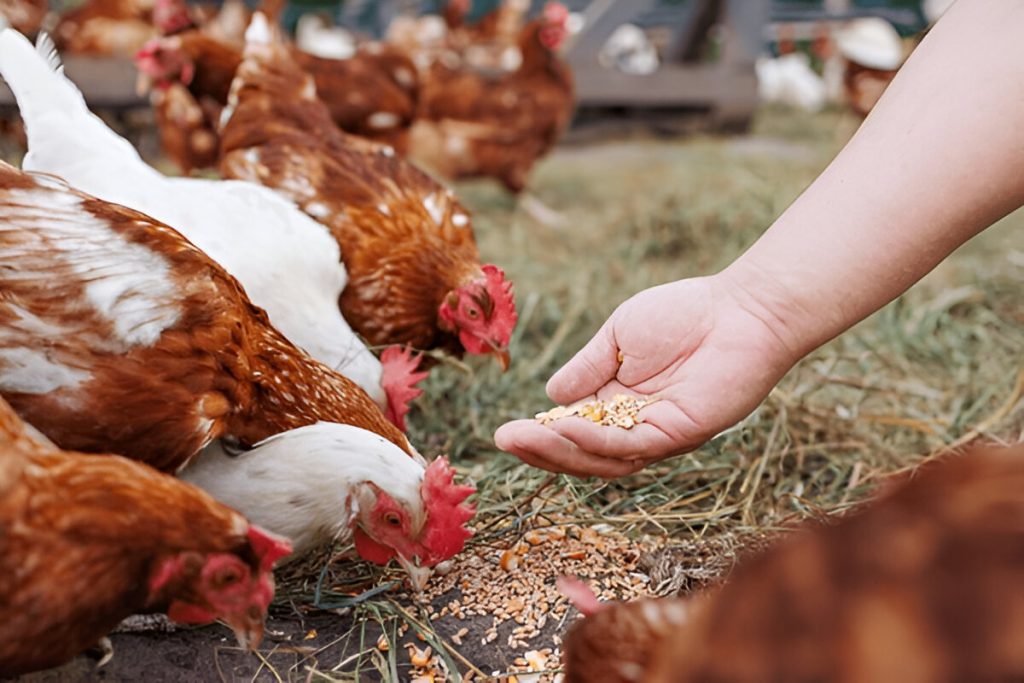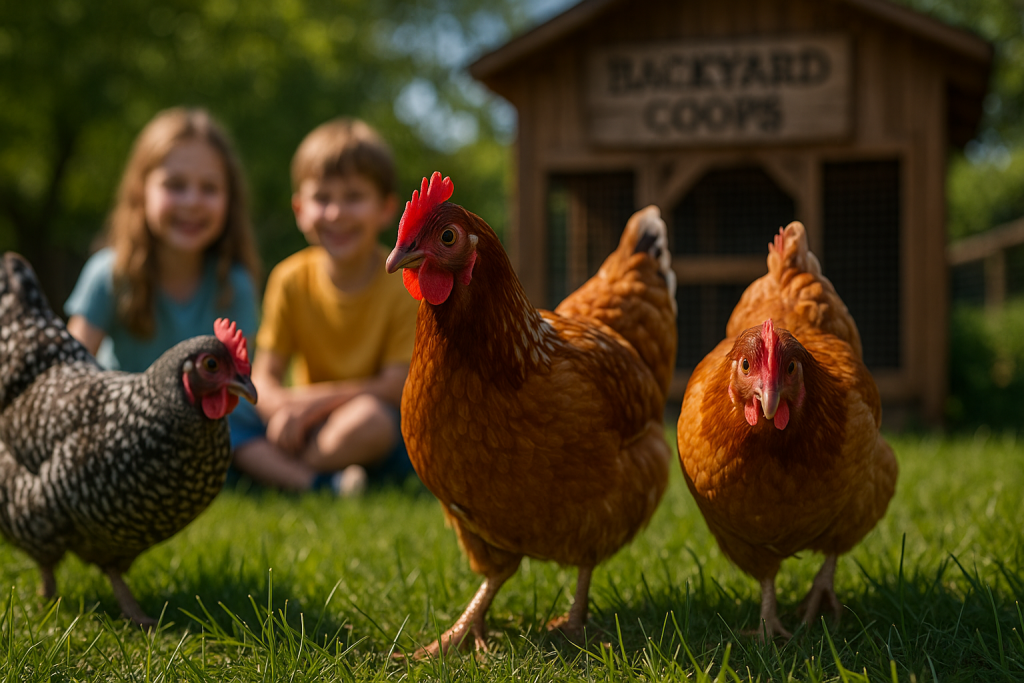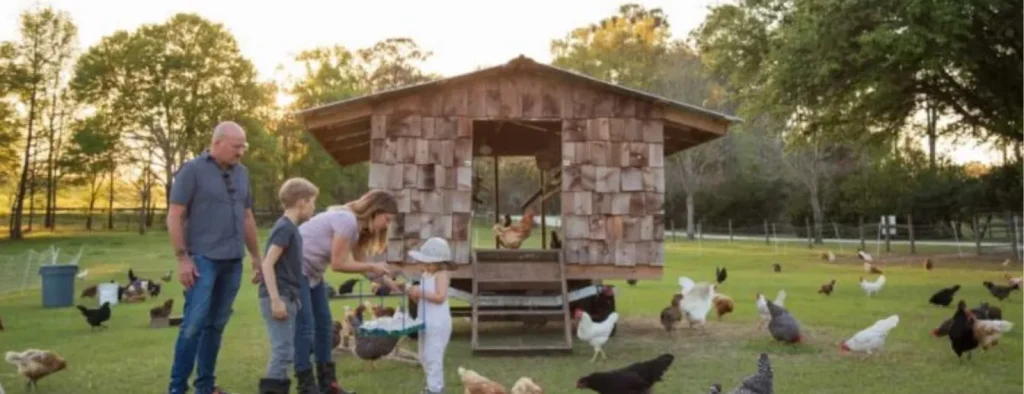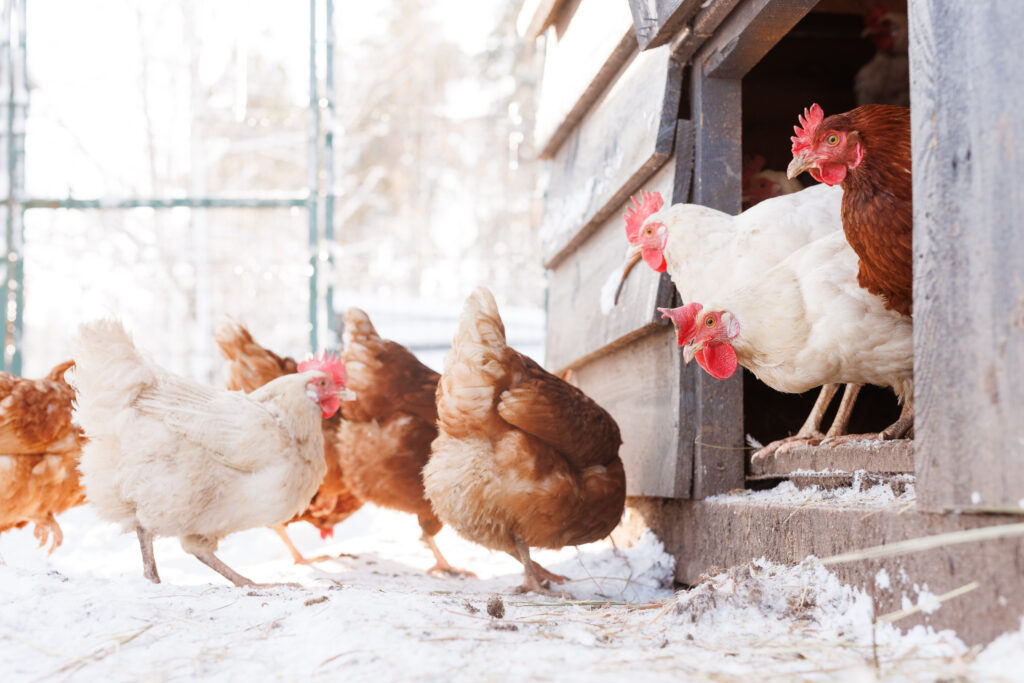Good egg hygiene and handling fresh eggs are the first steps to keeping your flock healthy and your kitchen safe. Clean eggs taste better, last longer, and make you worry less about food safety, whether you’re a new urban homesteader or an experienced keeper. This guide gives you useful, science-based tips that you can use right away, like how to design a nest box, collect eggs every day, and clean and store them gently so they stay fresh.
Egg Hygiene: Small Steps, Big Difference
If you don’t handle eggs correctly, they can get bacteria on their shells because they are porous. Taking care of your eggs and handling them properly lowers the risk of contamination (like Salmonella) and keeps your flock healthy. Both industry and consumer sources agree: unwashed eggs keep their natural protective bloom and can be stored at room temperature for a short time. However, once washed, that barrier is gone and refrigeration is recommended.
Quick checklist: egg collection and handling tips
- To keep eggs from breaking and getting dirty, you should collect them at least once a day, but twice a day is better.
- To keep eggs clean, use clean, dry nesting material and make it easy for them to get to their nests.
- Never put eggs in a food basket that is also used for other foods. Instead, keep a separate, clean egg basket or tray.
- These tips for collecting and handling eggs are small changes that help keep the shells clean and avoid cracks, which are the most common ways for eggs to get contaminated.
Cleaner Eggs Start with Better Nesting Design
A well-designed coop makes cleaning easier and keeps eggs cleaner and safer when handling them. Use nesting boxes that are closed off and have soft, absorbent bedding (like pine shavings or straw). The floors should be slanted so that eggs roll to a collection shelf, and the liners or trays should be easy to clean or removable. To keep nests clean and dry, change the bedding often and clean up any droppings right away. Because of these design choices, it will also be easier to follow tips for collecting and handling eggs, since they will be clean and easy to get to when it’s time to collect them.
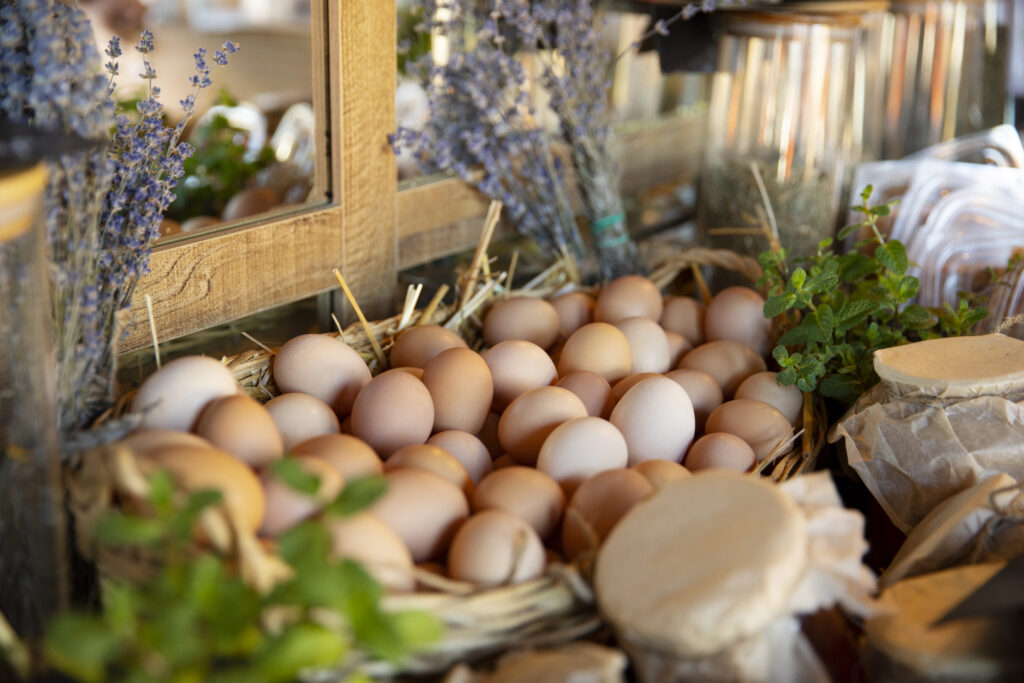
How to clean farm fresh eggs — safe methods
If the eggs look dirty, wash them gently right before you use them instead of soaking them or washing them for a long time. Two common suggestions are:
Cleaning without water: Use a soft brush, emery cloth, or fine sandpaper to get rid of dirt and debris without damaging most of the protective bloom.
Cleaning with water (when needed): Rinse each egg under warm running water that is warmer than the egg so that the contents don’t draw in dirt. If you need to, use a small brush. Don’t use detergents unless they are safe for food, and make sure to rinse them well. Refrigerate and use sooner after cleaning with water.
Use these tips for cleaning farm-fresh eggs sparingly. The less you strip the natural cuticle, the longer unwashed eggs can stay safe at room temperature.
The Best Way to Store Farm Fresh Eggs
If you wash your eggs, you need to store them differently than if you don’t. Farm eggs that haven’t been washed and still have the bloom can be kept at room temperature for a short time and often stay fresh for weeks if they are kept dry and out of direct sunlight. After washing, eggs should be kept in the fridge and used within a few weeks for the best quality. Put eggs in their carton and in the coldest part of the fridge (not the door) to keep them from losing moisture and smelling bad. These tips for storing farm-fresh eggs are in line with food safety guidelines and help keep the taste and texture.
Safe & Simple Egg Packing Guide
If you want to sell or give away eggs, make sure to label them with a “pack date” and say whether they are washed or not. Don’t put dirty eggs back in the carton with clean ones. Instead, use clean cartons. Most buyers expect eggs to be refrigerated after washing for small-scale sales. For farm-stand sales of unwashed eggs, make sure to clearly explain how to store them. These tips for collecting and handling eggs make them safer and more reliable for customers.
A practical daily routine (5 minutes a day)
- Pick up eggs twice a day and put them in a clean basket.
- Check for cracks and use cracked eggs right away.
- Use a dry brush to get rid of big pieces of dirt; only wet-clean eggs that are really dirty.
- Put them away based on whether or not they have been washed.
- Once a week, clean the egg basket and nesting area with a gentle, food-safe cleaner.
Following this short routine keeps egg hygiene & handling fresh eggs manageable even on busy days.
Chick And Nest | Reliable Chicken Coop Manufacturer
Chick and Nest makes coops and other things that modern backyard keepers need, like nest boxes and bedding that make it easier to follow tips for collecting and handling eggs. Their products are designed to be useful, which helps keep eggs clean and makes regular maintenance easier.
When choosing supplies, make sure to get nest boxes with doors that are easy to open and trays that can be taken out. These small things will make a big difference every time you collect.

Solving Common Problems
- Sticky or muddy eggs: Increase collection frequency and add a slightly elevated roll-out shelf.
- Cracked shells: Improve nest cushioning and reduce overcrowding.
- Persistent odor: Replace bedding more often and check ventilation.
These fixes improve both bird welfare and egg hygiene & handling fresh eggs outcomes quickly.
Final thoughts
Good egg hygiene and handling fresh eggs isn’t just one thing you do; it’s a set of small things you do all the time, like keeping nests clean, collecting eggs on time, cleaning them properly, and storing them properly. Following the steps for how to clean farm-fresh eggs only when necessary and following simple tips for collecting and handling eggs will keep your kitchen safer and your eggs tasting their best.
Chick and Nest has practical coop gear and nest box designs that make these steps easier. They help backyard keepers who want fresh, clean eggs with as little hassle as possible.
RealSimple and Southern Living have the best advice on how to clean and store things. BackyardChickens and Homesteading Family have advice on how to live in a community and on a homestead. Better Homes & Gardens has tips on how to take care of your coop.

